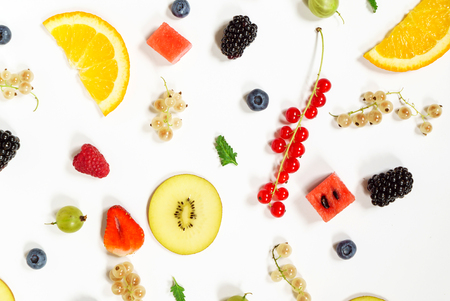Introduction: The Rise of Plant-Based Diets
Over the past decade, plant-based diets have gone from niche to mainstream across the United States. From grocery store shelves to restaurant menus, plant-based options are everywhere — and for good reason. More Americans are choosing to eat less meat and more fruits, vegetables, legumes, and whole grains in pursuit of better health, ethical eating, and environmental sustainability.
This growing trend is driven by a combination of factors: increased awareness about nutrition, concern for animal welfare, and the environmental impact of meat production. Celebrities, influencers, and even medical professionals have helped spread the message that cutting back on animal products can lead to a healthier lifestyle.
But beyond weight loss and heart health, many people are now asking: how does a plant-based diet affect your skin? As it turns out, what you eat plays a major role in how your skin looks and feels. A plant-based diet is often associated with clearer skin, fewer breakouts, and a youthful glow — but its not all positive. There are also some potential downsides that need to be considered.
Why Are Americans Going Plant-Based?
| Reason | Description |
|---|---|
| Health Benefits | Lower risk of heart disease, diabetes, obesity, and certain cancers. |
| Ethical Concerns | Desire to avoid contributing to animal cruelty or factory farming. |
| Environmental Impact | Reducing carbon footprint and conserving natural resources. |
| Skin & Beauty | Hopes for clearer skin, anti-aging effects, and improved complexion. |
As more people embrace this lifestyle change, it’s important to look at both the benefits and the possible challenges — especially when it comes to skin health. In this series, we’ll dive into how a plant-based diet can impact your skin, examining both the pros and cons so you can make informed choices for your beauty routine from the inside out.
2. How a Plant-Based Diet Affects Your Skin
What you eat has a direct impact on your skins appearance and health. A plant-based diet, rich in fruits, vegetables, nuts, seeds, and whole grains, provides essential nutrients that support glowing, clear skin. These foods are loaded with vitamins, minerals, antioxidants, and healthy fats that help nourish your skin from the inside out.
The Role of Key Nutrients in Skin Health
Plant-based foods are naturally high in skin-loving nutrients. Heres how some of the most important ones work:
| Nutrient | Found In | How It Helps Your Skin |
|---|---|---|
| Vitamin C | Citrus fruits, strawberries, bell peppers | Boosts collagen production and helps repair damaged skin |
| Vitamin E | Almonds, sunflower seeds, spinach | Protects skin cells from oxidative stress and UV damage |
| Beta-Carotene (Vitamin A) | Carrots, sweet potatoes, kale | Supports cell regeneration and helps prevent dry skin |
| Zinc | Pumpkin seeds, lentils, chickpeas | Helps fight acne-causing bacteria and inflammation |
| Omega-3 Fatty Acids | Chia seeds, flaxseeds, walnuts | Keeps skin hydrated and reduces redness or irritation |
| Antioxidants | Berries, green tea, dark leafy greens | Neutralize free radicals that can cause premature aging |
Better Hydration for Better Skin
A plant-based diet is typically high in water-rich foods like cucumbers, watermelon, oranges, and leafy greens. These help keep your body — and your skin — well-hydrated. Proper hydration can make your complexion appear more plump and radiant.
The Gut-Skin Connection
Your gut health plays a big role in how your skin looks. Plant-based diets are full of fiber which supports a healthy gut microbiome. A balanced gut can reduce inflammation throughout the body — including the skin — which may lead to fewer breakouts and less redness or irritation.

3. The Pros: Skin Benefits of Going Plant-Based
Switching to a plant-based diet isn’t just about improving your overall health — it can also do wonders for your skin. Many people notice visible improvements in their complexion after making the change. Heres a closer look at some of the main skin benefits linked to eating more fruits, vegetables, whole grains, and legumes.
Increased Hydration
Many plant-based foods like cucumbers, watermelon, oranges, and leafy greens are naturally high in water content. This helps keep your body — and especially your skin — hydrated from the inside out. Well-hydrated skin tends to look more plump, radiant, and youthful.
Improved Skin Elasticity
Fruits and vegetables are packed with antioxidants like vitamin C, which is essential for collagen production. Collagen is the protein that helps maintain skin’s firmness and elasticity. Over time, eating a variety of colorful plant-based foods may help your skin stay firm and reduce the appearance of fine lines.
Reduced Inflammation
Inflammation is often behind many common skin issues like acne, eczema, and redness. A plant-based diet is rich in anti-inflammatory compounds found in foods like berries, leafy greens, turmeric, nuts, and seeds. These nutrients help calm inflammation in the body, leading to clearer and calmer skin.
A Clearer Complexion
Cutting back on processed foods and dairy (which are often reduced or eliminated in plant-based diets) can help reduce breakouts for some people. At the same time, increasing fiber intake through whole plant foods supports gut health — another key factor in achieving glowing, clear skin.
Key Skin Benefits at a Glance
| Benefit | How It Helps Your Skin | Plant-Based Sources |
|---|---|---|
| Hydration | Keeps skin moisturized from within | Cucumbers, watermelon, oranges |
| Elasticity | Supports collagen production for firmer skin | Citrus fruits, bell peppers, broccoli |
| Reduced Inflammation | Lowers redness and acne flare-ups | Berries, leafy greens, turmeric |
| Clearer Complexion | Decreases breakouts and promotes glow | Nuts, seeds, whole grains |
If youre looking for a natural way to boost your skincare routine from within, adding more plant-based meals to your day might be a great place to start.
4. The Cons: Possible Skin Challenges
While plant-based diets can offer plenty of skin benefits, its important to be aware of some potential downsides that might affect your skin health. Not everyone reacts the same way to dietary changes, and understanding what to watch out for can help you make smarter choices.
Nutrient Deficiencies That Can Impact Skin
Some essential nutrients that support healthy skin are found in higher amounts in animal products. Without proper planning, a plant-based diet may lead to deficiencies that show up on your skin.
| Nutrient | Role in Skin Health | Plant-Based Sources |
|---|---|---|
| Vitamin B12 | Supports cell regeneration and prevents dryness | Fortified cereals, plant milks, nutritional yeast (supplements often needed) |
| Iron | Helps oxygenate skin cells for a healthy glow | Lentils, spinach, tofu (pair with Vitamin C for better absorption) |
| Zinc | Aids in healing and helps prevent acne | Pumpkin seeds, chickpeas, quinoa |
| Omega-3 Fatty Acids | Keeps skin hydrated and reduces inflammation | Chia seeds, flaxseeds, walnuts (consider algae-based supplements) |
Acne Triggers from Certain Plant-Based Foods
Even though fruits and veggies are generally great for your skin, not all plant-based foods are acne-friendly. Some may spike blood sugar or contain natural compounds that trigger breakouts in sensitive individuals.
Common Acne-Triggering Plant Foods:
- Soy products: High consumption can affect hormone levels in some people.
- Refined carbs: White rice, white bread, and pasta can cause insulin spikes linked to acne.
- Dried fruits: Often high in sugar which may contribute to breakouts.
- Nuts (especially peanuts): May increase oil production and inflammation for some individuals.
Dry Skin from Lack of Essential Fats
If youre not careful about including enough healthy fats in your plant-based diet, your skin might become dry or flaky. Omega-3s are especially important for maintaining moisture and elasticity.
Tip:
Add sources like avocado, olive oil, chia seeds, flaxseeds, and hemp seeds to your meals regularly. If needed, an omega-3 supplement derived from algae can help fill the gap.
The key is balance—while going plant-based has its perks, its crucial to ensure youre getting the right nutrients to keep your skin glowing and happy.
5. Tips for a Balanced, Skin-Healthy Plant-Based Diet
If youre switching to a plant-based diet or already following one, making sure your skin gets the nutrients it needs is key. A well-planned plant-based lifestyle can support clear, glowing skin—if you know what to include. Here are some easy-to-follow tips to help you nourish your skin from the inside out.
Stay Hydrated
Water plays a huge role in keeping your skin plump and radiant. Aim for at least 8 cups (64 oz) of water a day. Herbal teas and water-rich fruits like cucumbers and watermelon also count.
Eat a Rainbow of Whole Foods
Different colors in fruits and vegetables represent different antioxidants and vitamins. These nutrients help protect your skin from damage and keep it looking fresh.
| Color | Examples | Skin Benefits |
|---|---|---|
| Red | Tomatoes, strawberries, red peppers | Lycopene helps fight sun damage |
| Orange/Yellow | Carrots, sweet potatoes, mangoes | Beta-carotene supports healthy skin tone |
| Green | Kale, spinach, broccoli | Rich in vitamins A, C & E for overall skin health |
| Purple/Blue | Blueberries, eggplant, grapes | Anthocyanins combat inflammation and aging signs |
Dont Skip Healthy Fats
Your skin needs fat to stay moisturized and supple. Include sources like:
- Avocados – rich in vitamin E and healthy fats
- Nuts and seeds – especially walnuts, flaxseeds, and chia seeds for omega-3s
- Olive oil – use as a dressing or drizzle over roasted veggies
Get Enough Protein
Your body uses protein to repair tissues—including your skin. Great plant-based options include:
- Lentils and beans (black beans, chickpeas)
- Tofu, tempeh, edamame (soy-based proteins)
- Quinoa and whole grains like oats and brown rice
- Nuts and seeds (also provide healthy fats)
Consider Supplementing Wisely
Certain nutrients are harder to get on a plant-based diet but are essential for healthy skin. Talk with your doctor or nutritionist about these supplements:
| Nutrient | Why It Matters for Skin | Suggested Sources/Supplements |
|---|---|---|
| Vitamin B12 | Aids in cell production; deficiency may lead to dry or irritated skin | B12 supplement or fortified foods like plant milks and cereals |
| Zinc | Helps with wound healing and acne prevention | Pumpkin seeds, legumes; consider a supplement if needed |
| Omega-3s (ALA, EPA/DHA) | Keeps skin hydrated and reduces inflammation | Flaxseed oil, algae-based omega-3 supplements for EPA/DHA |
| Vitamin D | Supports skin cell growth and repair | D2 or vegan D3 supplements; sun exposure when possible |
| Iron | Lack of iron can make skin look pale or dull | Lentils, spinach + vitamin C foods to boost absorption; iron supplements if deficient |
Keep It Simple: A Sample Daily Skin-Friendly Meal Plan
| Meal Time | Example Meal Idea |
|---|---|
| Breakfast | Smoothie with kale, banana, flaxseeds & almond milk + fortified cereal with berries |
| Lunch | Buddha bowl with quinoa, roasted sweet potatoes, chickpeas, avocado & tahini dressing |
| Dinner | Lentil stew with spinach + whole grain bread + side salad with olive oil vinaigrette |
| Snack Options | Nuts & fruit, hummus with veggie sticks, or dark chocolate square (70%+ cocoa) |
A thoughtful approach to your plant-based meals can do wonders not just for your health but also for your glow. Its all about balance—and giving your body the tools it needs to shine through your skin.
6. Conclusion: Is a Plant-Based Diet Right for Your Skin?
Choosing a plant-based diet can be a game-changer for your skin, but it’s not a one-size-fits-all solution. Everyones body is different, and how your skin reacts to dietary changes depends on various factors like genetics, lifestyle, and current skincare habits. Let’s break down the benefits and drawbacks of going plant-based when it comes to your skin health.
Pros and Cons of a Plant-Based Diet for Skin
| Pros | Cons |
|---|---|
| Rich in antioxidants that fight inflammation and signs of aging | Poor planning may lead to deficiencies in key nutrients like B12, zinc, or omega-3s |
| High water content in fruits and veggies helps keep skin hydrated | Lack of complete proteins may affect collagen production if not balanced properly |
| Diets low in processed foods can reduce acne flare-ups | Certain high-glycemic plant foods may still trigger breakouts |
Tips for Adopting a Skin-Friendly Plant-Based Lifestyle
#1. Focus on Variety
A diverse range of whole foods ensures youre getting all the vitamins and minerals your skin needs—think leafy greens, nuts, seeds, legumes, whole grains, and colorful fruits.
#2. Supplement Smartly
If youre fully plant-based, consider supplements for vitamin B12, vitamin D, iron, and omega-3 fatty acids to support overall health and skin function.
#3. Watch Your Sugar Intake
Avoid relying too heavily on refined carbs or sugary plant-based snacks. These can spike insulin levels and contribute to acne or dull-looking skin.
#4. Stay Hydrated
No matter what diet you follow, drinking enough water is crucial for maintaining skin elasticity and glow.
Your Next Step
If youre thinking about going plant-based for better skin, start gradually. Pay attention to how your body—and especially your skin—responds. Track any changes and consult with a dermatologist or nutritionist if needed. With the right balance, a plant-based diet can absolutely support radiant, healthy skin.


